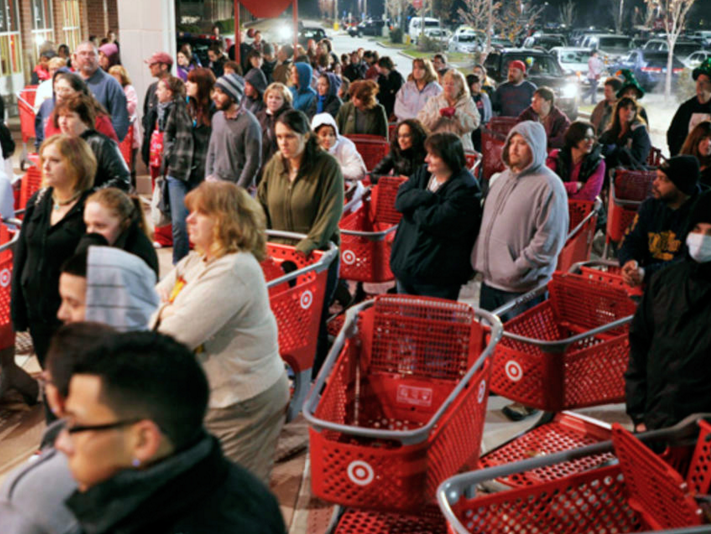Who Really Saves Money on Black Friday?
Samantha PerezTHE SANTA CLARANovember 12, 2015
[dropcap]M[/dropcap]illions of Americans will rush to malls this Thanksgiving to take care of their Christmas lists during the time when stores have their most affordable prices: Black Friday.
Back when accounting records were written in pen, red ink would represent a loss and black would indicate a profit. Since people are getting ready to cross items off their Christmas lists, this is the time of year when the ink would change from red to black, hence the name Black Friday.
We can easily infer, simply from the name if nothing else, that big corporations and business owners are profiting from Black Friday, but what about employees, and what about us, the consumers?
Black Friday is becoming a less and less accurate name as the years go by, since an increasing number of companies are trying to start Black Friday as early as that Wednesday. Thursday, as we all know, is Thanksgiving Day.
Rather than enjoy dinner with their families, employees will count cash for the register and deal with large crowds and belligerent customers. Retail employees who work a plane ride away from their families can’t go home because they’re often scheduled to start work on Thanksgiving at 8 p.m. sharp.
More and more protests and petitions are popping up throughout the country addressing this issue, but ultimately, the decision is in the hands of the corporations, whose number one priority is ensuring that the ink on their accounting records remains as black as can be.
Black Friday makes a lot of consumers feel special. After all, they are getting the best deals of the year that day, right? Well, not necessarily.
Sure, companies are willing to take a loss on a few items to get people in the door, but in reality the deals aren’t as amazing as one might think.
First of all, the quantities of the items on sale are extremely limited. Only a handful of customers will get in on the real money savers. “If you’re looking for that ultimate score, the half-price big screen TV, if you’re not the twenty-fourth person in the line, ‘good luck,’” the chief retail analyst at the National Purchase Diary Group said in a November of 2013 article for CNNMoney.
The quality of many of the items sold on Black Friday is also highly questionable. Keep in mind, a big corporation’s main concern is not the customer, it’s the customer’s wallet. The prices may be cheap, but the product is cheaper.
Consumers have more of an effect than they realize. Although the employees of these major companies are trying to conduct protests demanding Thanksgiving become a paid Holiday, it is ultimately the consumer that gives the corporations their money, so it is the consumer that must stand up.
This Thanksgiving, as you’re sitting down to enjoy a delicious meal with your family, I urge you to think about those who can’t: retail workers.
Whether they need to work because they can’t afford to take an unpaid day off, or if a company is forcing them to work, it is painfully obvious that they are being taken advantage of by the system. Those retail workers will be looking at the clock every five minutes praying the hour hand will be a little farther away from where it last was, and the only thing they will be thankful for is a brief fifteen minute rest in dimly lit break room.
Thanksgiving isn’t just about being thankful for what we have; it’s also about giving back to those in need.
I’m not suggesting that you lock yourself in your house this Black Friday — just do some research first. Figure out what companies are worth buying from. As consumers, we are being called to make a difference this Thanksgiving break; who you give your money to can make quite the difference.
Samantha Perez is a freshman English and political science double major.